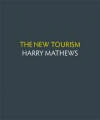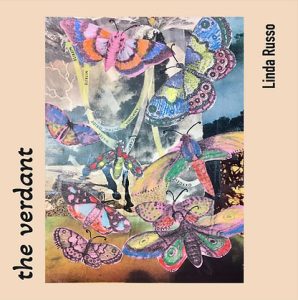The New Tourism
The New Tourism is a collection of new poems by Harry Mathews, the avant-garde writer with associations to both Oulipo and the New York School. The book is divided into three sections, each quite different from one another. The first section consists of a single poem, written in six parts, called “Butter and Eggs: a didactic poem.” Using language more often found in a cookbook than in a collection of poetry, the poem may remind readers of Mathews’s short story “Country Coking from Central France: Roast Boned Rolled Stuffed Shoulder of Lamb (Farce Double),” with its rich writing about food and deadpan use of humor.
The New Tourism is a collection of new poems by Harry Mathews, the avant-garde writer with associations to both Oulipo and the New York School. The book is divided into three sections, each quite different from one another. The first section consists of a single poem, written in six parts, called “Butter and Eggs: a didactic poem.” Using language more often found in a cookbook than in a collection of poetry, the poem may remind readers of Mathews’s short story “Country Coking from Central France: Roast Boned Rolled Stuffed Shoulder of Lamb (Farce Double),” with its rich writing about food and deadpan use of humor.
The second section collects together fifteen individual poems, varying in style, from tightly-condensed poems, to those containing longer lines to the wonderfully meandering prose poem “Crème brûlée,” which begins with a meditation on trees, moves on to swallows and traveling down the highway, to crème brûlée, restaurants, and wine, to the demons inside one’s self. Recurring themes in this section include reminiscing, failure, and past loves, which seem appropriate themes for a writer now in his eighties. In “Genoa as Rendezvous,” the speaker explores “a grabyard of remembrances”:
I went looking
for a safe hiding place
and a stump of candle
to recall a once-upon-a-time
Genoese lunch
where we began
forgiving one another
and ourselves
never too soon.
This section also includes poems written for or inspired by Heinrich Heine, Kenneth Koch, and Henry Vaughan. Other poems have a certain musicality to them and rely on heavy repetition, such as the title poem, which begins and ends with the same stanza:
Where is it I came from
And where is it I’m stranded?
Part of the maps is black
And the rest’s in borrowed language.
I don’t know what to make of “maps,” but really it doesn’t matter when allowing the sounds to take over. “The New Tourism” employs rhyme and repetition, and is pantoum-like, though not really at all. This is one of the wonderful things about Mathews’s poetry—he convincingly delivers strong work that feels like it is a standard form, but really it is a form all his own, or at least not one a student is likely to encounter in an introductory poetry course.
Form becomes key to the third (and longest) section of the book, which consists of “Haikus Before Sleep,” 128 of them to be exact. People who argue that haiku can’t work in English or that haiku always has to address nature will not care for Mathews’s take on the form, which he states plainly:
So five syllables
then combine themselves with two
before shrinking back.
The “Haikus Before Sleep” range in concerns from nature, to family and friends, to drugs and alcohol, to the self-reflective, commenting on missing a night or two of this writing practice. They also range in tone, from the serious:
A six-year-old boy
looks at me as someone real.
No time for fuckups.
to the not-so-serious:
I stoned; what haiku?
“What you want to know, brother?”
Just the hi! of coo.
Overall The New Tourism is a solid collection of work from someone who seems to enjoy what he is doing. The playfulness and pleasure shine through, even when the themes may approach the darker-side of things.





